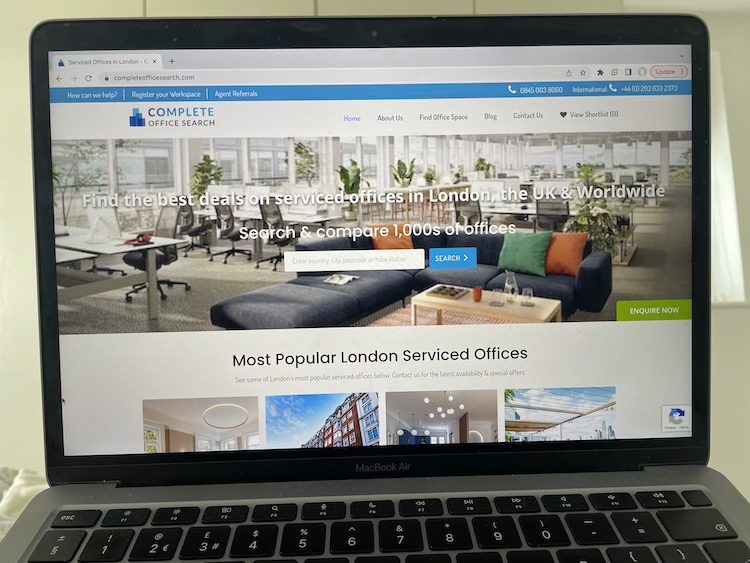Working from Home vs. Working from an Office: A Comprehensive Comparison

Working from Home vs. Working from an Office: A Comprehensive Comparison
Over the past couple of years, the world has witnessed a significant shift in work dynamics, with remote work becoming the new norm for many professionals.
The advent of advanced communication technologies and the global shift toward flexible work arrangements have made it possible for many professionals to choose between working from home or working from a traditional office environment.
While both options have their advantages and disadvantages, understanding the key differences between them is essential for individuals and organizations when considering the most suitable work setup.
Working from the comfort of one’s home has its allure, offering flexibility, comfort, and independence. However, the traditional office environment still has its loyal supporters who believe in the power of collaboration, structure, and face-to-face interaction.
Both approaches have their advantages and disadvantages, and the optimal choice may vary depending on individual preferences, job requirements, and organizational culture.
Let’s explore the key arguments for each side to provide a comprehensive overview of the debate:
Advantages of Working from Home:
- Flexibility: One of the primary benefits of working from home is the flexibility it offers. Remote work allows individuals to set their own schedules, providing a better work-life balance. It enables people to adapt their working hours to their personal needs, potentially increasing productivity and overall satisfaction.
- Commute and Cost Savings: Remote work eliminates the need for daily commuting, saving employees valuable time and money. Additionally, expenses related to office attire, lunches, and parking are reduced or eliminated.
- Increased Productivity: For many individuals, working from home can enhance productivity. Without the distractions and interruptions of an office environment, employees can focus on their tasks, resulting in improved efficiency. Furthermore, the ability to create a personalized and comfortable work environment can contribute to increased concentration and output.
- Reduced Stress and Improved Well-being: Remote work can reduce stress levels associated with long commutes, office politics, and conflicts with colleagues. It provides a sense of autonomy and control over one’s work environment, which can lead to improved job satisfaction and overall well-being. Additionally, remote work can be especially beneficial for individuals with physical disabilities or health conditions that make commuting or office work challenging.
- Work-life balance: Working from home can provide an opportunity to achieve a better work-life balance by allowing you to spend more time with family, engage in personal activities, and reduce the stress associated with commuting.
Advantages of Working from an Office:
- Collaboration and teamwork: Office environments facilitate face-to-face interaction, which can enhance collaboration, teamwork, and creativity. In-person meetings, brainstorming sessions, and spontaneous discussions can lead to more dynamic problem-solving and innovation, which can be crucial for certain types of work or projects.
- Separation of work and personal life: Having a physical separation between work and home can help establish boundaries and promote better work-life balance. It can be challenging to disconnect from work when your home is also your office.
- Resources and infrastructure: Offices typically provide specialized equipment, tools, and resources that may be essential for certain professions or projects. Additionally, access to a stable internet connection and reliable technical support is often more readily available in an office setting.
- Social interaction and networking: Office environments foster social interaction and networking opportunities, allowing employees to build relationships, share knowledge, and form connections that can be beneficial for personal and professional growth.
- Structure and routine: Working from an office often provides a structured routine and can help maintain focus and discipline.
In conclusion, both working from home and working from an office have their unique advantages and disadvantages.
The choice ultimately depends on individual preferences, job requirements, and the nature of the organization. While remote work provides flexibility and convenience, it requires self-discipline and effective communication skills.
Traditional office environments offer structure, collaboration opportunities, and a clear separation between work and personal life.
Ultimately, striking a balance between the two approaches or considering a hybrid model might be the ideal solution, allowing individuals and organizations to leverage the best of both worlds.
It is important to note that the advantages and disadvantages of each option can vary depending on factors such as job nature, industry, personal circumstances, and individual work preferences.
Many companies have adopted a hybrid approach, allowing employees to work from home for a portion of the week while still maintaining some in-office collaboration. This model aims to combine the benefits of both remote work and office-based work.
The decision between working from home or working from an office depends on finding a balance that suits the needs of the individual and the organization.
If you are looking into flexible workspace please contact us on 0203 633 2373 to speak to one of our serviced office space specialists, and take advantage of our experience and free office search service.
